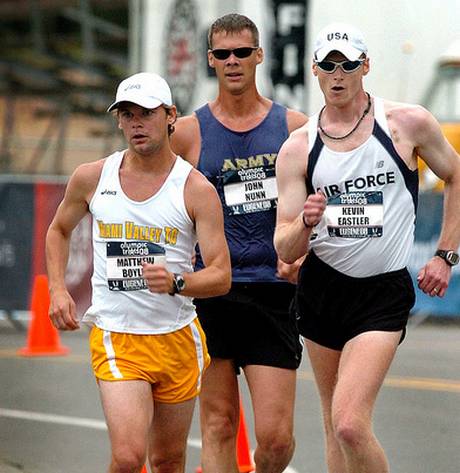Time for coffee and tea
Caffeine use in sport by athletes to increase exercise performance
Tea and coffee articles
Recommended Pages
The Effect of Caffeine Use on Athletes
Coffee is a well known source of caffeine; the reason that the use of caffeine is considered to be the most widely used drug is due to the world wide consumption of coffee and tea.
In sports such as athletics the use of caffeine is well known to provide ergogenic advantages and caffeine is placed on the banned drug use. If an NCAA athlete is found to have a concentration of 15ug/ml in their urine then they may be banned from competition.
This does not bother most athletes who want to gain a performance boost by the use of caffeine; the concentration required to get a boost in ergogenic benefit is far below the amount need to get a ban!
How Does Caffeine Enhance Athletic Performance?
It is thought by many that one of the ways in which an athlete receives a benefit from taking caffeine during exercise is through enhanced fat oxidation occurs; this leads to a sparing of the use of glycogen. However, it is probably more likely that the way that caffeine is beneficial to athletic performance is because it is able to inhibit adenosine receptors in the central nervous system. A further aspect of caffeine use is the effect that it has on the cardiovascular system.
 Competing Athletes photograph by familymwr.
Competing Athletes photograph by familymwr.
Cardiovascular Impacts of Consuming Caffeine in Athletes
There have been many studies that have looked at the link between caffeine consumption and the cardiovascular system. These reports have had mixed results, some suggesting that caffeine increases heart rate during exercises whilst others say it is reduced or has no effect. It has however been found that the use of caffeine increases the blood pressure levels of athletes during training.
Low Dose Levels of Caffeine in Athletes
McClaren and Wetter recently took a look at the effect of caffeine on the cardiovascular system of athletes. They decided to look at the effect of caffeine when taken at a lower rate than that required to be banned, and chose a level that is commonly used by many athletes today.
They found that the use of caffeine at a concentration of 1.5 and 3 mg/kg of the athletes body rate had a significant impact on athletes who were not regular coffee or tea drinkers. This was indicated by a significant decrease in heart rate during low to moderate exercise routines.
Caffeine Content in a Cup of Coffee
As a cup of coffee contains between 40 and 120mg of caffeine, the level of caffeine intake to enhance athletic performance is equivalent to one or two cups of coffee. Although the consumption of caffeine was found to have an effect on heart rate during moderate exercise it did not lead to an increase overall performance, or change the heart rates of athletes at rest.
It is interesting that previous studies that used higher quantities of caffeine did not find a positive relationship between caffeine consumption and heart rate in athletes; this suggest that the impact of caffeine upon heart rate in athletes is dosage dependent.
Reference
McClaran and Wetter (2007). J.Int.Soc. Sports Nutrition. 4.11